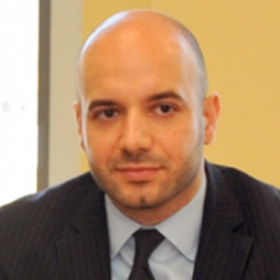
The Changing Middle East
The EastWest Institute and Friedrich-Ebert-Stiftung New York Office hosted "The Changing Middle East--Implications for Regional and Global Politics," a day-long workshop that led to lively debates about the current dramatic developments in the region.
“The dynamic of change is the people themselves, which is what makes this exciting and unpredictable at the same time,” said Salman Shaikh, director of the Brookings Doha Center and fellow at the Saban Center for Middle East Policy. “This is a process that is long overdue.”
Others saw both opportunities and perils in the new situation. Egyptian Foreign Ministry official Tamim Khallaf described the changes as part of a larger process of de-militarization of Arab governments, and he hailed the first free presidential elections in his country. Turkish economist Gökhan Bacik called the Arab Spring “a great economic opportunity for Turkey.”
But others warned of the dangers of populism when the early euphoria turns to disappointment as economic problems persist, and expressed concerns about new divisions, particularly within Islamic movements. “We are witnessing centrifugal forces at work that are pulling at the old religious and tribal divides,” said Isobel Coleman of the Council on Foreign Relations.
While some panelists disagreed on whether to call the upheavals in the region a revolution or an awakening, there was consensus that, whatever label is used, the magnitude of the changes cannot be denied. “This is not something seasonal or brief,” said Dan Arbell, Minister of Political Affairs at the Israeli Embassy in Washington. “I see this as a tectonic shift.”
Predictably, there were sharp disagreements on Iran’s nuclear program. Ambassadior Seyed Hossein Mousavian, who served as Iran’s spokesman during its nuclear negotiations with the European Union from 2003 to 2005, declared: “Iran is prepared to accept a deal based on maximum transparency measures.” But according to Israeli diplomat Arbell, “The window for the diplomatic option is closing.”
Panelists also discussed the Syrian crisis, the internal disagreements in Israel about that country’s future, the impact of the regional upheavals on women and minorities, and the prospects for a nuclear-free zone in the Middle East.
For more information on speakers and panel sessions, click here to download the agenda.
MP3s of panel sessions:
Panel III: Chances for Rapprochement: What Role for Multilateral Initiatives? (1:28:18)
Portions of the livestream recording are available for viewing here via EWI's Ustream channel:
Click here for more coverage of the event by the Inter Press Service.

